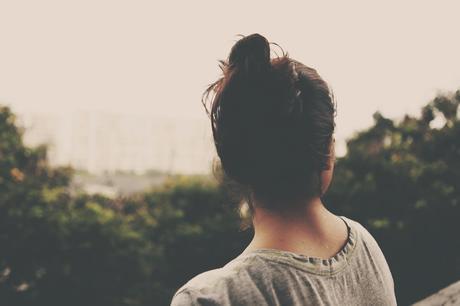
The sting of “pretty”
Our society very clearly communicates that pretty is everything. Pretty is skipping breakfast. Pretty is counting calories. Pretty is losing weight (and not gaining it back). Pretty is being told by friends that “you look so skinny.”
I know the sting of pretty. My body dissatisfaction and extreme dieting started at the age of 10, when my friend’s mom told me that I shouldn’t wear sweatpants because they made my thighs look large. As a fourth grader, I equated “large” to fat, ugly, and “unpretty.” From then on, whether it was trying on a smaller dress than I knew I could fit into, adding filters to my Instagram photos, constantly weighing myself, or comparing my body to my peers, I always found myself questioning my appearance and wondering, “How come I’m not pretty?”
When I turned 18, I dropped 30 pounds in four months. I did so by maintaining a strict vegan diet, which left me protein deficient, anemic, and Vitamin D deficient. I went to the gym six times a week; my muscles constantly ached from my hour-long treadmill runs. Tumblr and Instagram offered instant gratification every time I posted a picture of my daily food intake or a gym selfie. While on my vegan diet, I tried to convey my pretty self online by posting pictures of my gym workouts, my superfood smoothies, and my food prep pictures. The link between a “like” or follow and feeling popular became blurred and further encouraged me to post even more.
This “lifestyle” physically and mentally drained me almost to the point of death. This extreme dieting made me lose weight fast, but I was also suffering from mental illness: I was depressed and suffering from a body image disorder.
Only one in seven Americans consider themselves “body positive,” but males are much more likely to accept their bodies than females, likely because they aren’t subjected to the same criticism. Although women become more accepting of their bodies over time, teen girls especially put more emphasis on their shape and image due to a number of pressures, like the fashion industry’s emphasis on thinness (which permeates the rest of the media) and the competition with friends and desire to fit in at school that these pressures encourage.
An especially informative (and relatively new) pressure can be found in the Idealized images circulated on social media, especially social media’s unrealistic pictures of health. Last month, Loma Linda University research connected frequent social media use to negative body image in young adults, especially in teen girls. So many young women build their ideas of health and wellness around such images, even though they frequently present an unattainable standard. It often becomes difficult for social media users to distinguish their online selves from their actual day-to-day lifestyles.
But even so, I think young women are tired of society defining pretty for them. As model and actress Cara Delevingne recently put it in Teen Vogue: “It’s exhausting to be told what beauty should look like.” The problem is it often takes time for women to step back and realize this. It wasn’t until I deleted my social media accounts for 30 days, started seeing a therapist, and gradually increased the sizes of my meals that I realized I had been suffering all along.
But in addition to my personal revelation, I had a much broader one about how beauty standards work overall. While in recovery, I watched a documentary called Killing Us Softly”by Jean Kilbourne that examined how the media uses images of thin girls and women to sell their products. I began to understand that I had been influenced to look pretty for these very reasons, and realized just how influential the media is on women, and why we need to become more aware of this negative impact in order to save lives.
I still don’t know what pretty actually means, but I don’t care anymore. Pretty is draining. Pretty isn’t worth it. Pretty is a word that doesn’t equate to your Instagram post, your food intake, or your individual beauty.
For Mental Health Awareness Month, therefore, I challenge young women to reflect on their social media use and avoid posting to impress anyone but themselves. Your life should not be a competition or dependent on other people’s validation.

